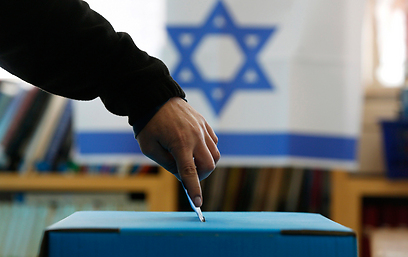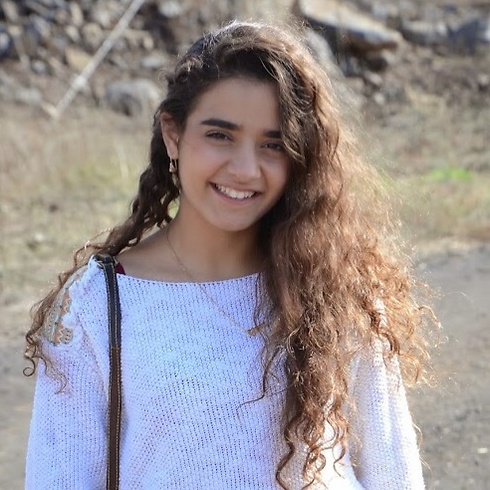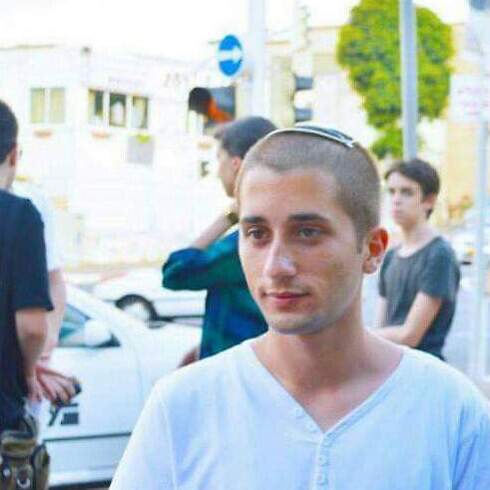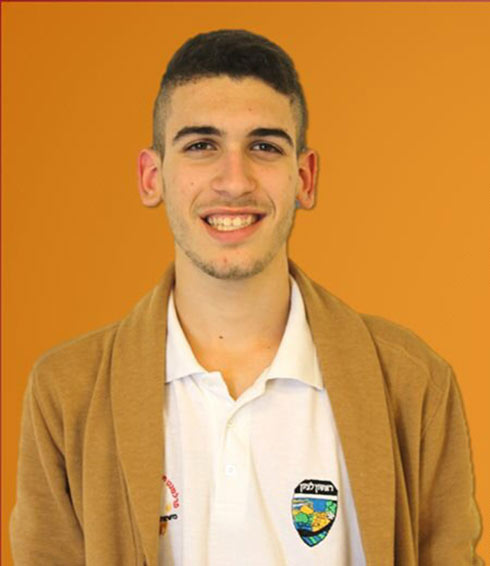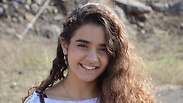
Meytar Kalfon: Wants to lower voting age to 17
צילום: נצנאל בן עמי
Majority of first-time voters are leaning to the right
Some 67% of first-time voters define themselves as either right-wing or center-right, with 17.6% of them backing Likud and only 9.3% saying they would vote for Zionist Camp.
Tens of thousands of high schools seniors will be voting on March 17 for the first time. They make up some 5 percent of eligible voters, and are aged 18-20.
Polls conducted by the Midgam Institute over the past few weeks among hundreds of Jewish citizens aged 18 and up found that 53.5 percent of first-time voters said they will definitely vote in the upcoming elections, while 16.9 percent said the chances they will vote are low (compared to 6.2 percent of all eligible voters), 8.2 percent said they were certain they are not going to vote (compared to 3.5 percent of all eligible voters) and 2.4 percent said they still haven't decided whether or not to vote.
Among those first-time voters, 17.6 percent said they would vote for the Likud party, 14.2 percent for Bayit Yehudi, 10.7 percent intend to vote for Shas, 9.5 percent will give their vote to Yesh Atid, only 9.3 percent said they would vote for the Zionist Camp, 7.7 percent for Meretz, 6 percent for Kulanu and 2 percent for Yisrael Beytenu.
The polls show that 31.3 percent of first-time voters define themselves as right-wing, 20.2 as center-right and 15.6 percent as extremely right-wing. Thirteen percent defined themselves as centrists, 10 percent center-left, 2.2 percent as extremely leftists and the rest refused to disclose their political inclinations.
The Citizens' Empowerment Center in Israel and the Education Ministry will hold a political panel on Sunday that will be attended by some 1,000 high school seniors. Participating in the panel are Zionist Camp chairman Isaac Herzog, Kulanu chairman Moshe Kahlon, Yesh Atid chairman Yair Lapid, Bayit Yehudi chairman Naftali Bennett, Meretz chairwoman Zehava Gal-On, Shas chairman Aryeh Deri and the united Arab list's chairman Aiman Uda. The Likud has yet to confirm its representative for the panel.
Meytar Kalfon, a senior at Ort high school in Afula, knows what issues are most important to her, but has yet to find the party that shares her beliefs.
"I actually don't really understand what the candidates are offering me," she says. "I'm in favor of a social-democratic state, and I want there to be an emphasis placed on teenagers. There are parties that mention us in their platforms, but in very general and unsatisfying terms. We want to pass a law to lower the age of eligible voters to 17, and it's important to me to know which party supports this and will commit to promoting it in the next government."
Kalfon says she loves politics and follows the news regularly, which is why it is so important to her to have her own independent opinion, free of what she hears at home. "We talk about politics, but I'm almost sure my parents and I will vote differently. This is my chance to formulate an opinion of my own. I don't think it's right to vote for a certain party just because my parents vote for it."
Next month she will execute her right to vote for the first time, which she says is "a bit exciting because I finally have an opportunity to make a difference on what's happening in the country, even if it's indirectly. I hear students eligible to vote saying they can't find the right person to vote for so they will give up. I won't accept that. There may not be a person most suitable for the job, but there must be someone."
Eitan Swisa, a senior in a yeshiva for high-school students in Haifa, is debating between several parties, but has realized his opinions are moving between the center and the right side of the political spectrum. He will arrive at Sunday's panel armed with questions.
"I think it's the best way to make a decision. It's better than reading their Facebook posts or watching election propaganda on TV. I'll compare the parties I'm debating between based on the answers," Swisa said. "I intend to give my vote to the one whose opinions are in line with my ideology. The most important thing for me is security. Then we need a good economy, to take care of the weaker classes. I'm graduating this year and I have older siblings who recently got married and I see how difficult it is for them economically."
Tom Pe'er, a high-school senior from Rishon LeZion, already knows who he's voting for. "I was looking for a party whose members will lead a new way, in which the word 'politics' is not a curse word, who will pave a way for the teens who, in a few years, will sit in their seats. I view this party as credible, honest and uncorrupted and in light of recent days, it's one of the most important criteria for me. Beyond that, social issues are important to me and this party has committed to promoting quite a few reforms in that field."
Ahead of the panel on Sunday, the students participated in an online lesson in which they received information about the candidates, the goals of the panel and the way it will be conducted.
"We gave them tools for a correct critical analysis of both the political map and the things politicians say, and we exposed them to the technological tools that can provide them with more information," say Aviv Tzemah and Dvir Kaplan, who taught the lesson.
Dana Friedman, the director of the Civic Education department at the Education Ministry, stresses that "We are not trying to convince them to go and vote for a specific party, and we don't favor one person or another. We want them to care as citizens, and they definitely understand that they have to be very responsible about this process."
The director of the Citizens' Empowerment Center, Tomer Lotan, said: "Our conference expresses the desire to have a real meeting between voters and candidates, and to give young people good, high quality tools to execute their democratic right."










